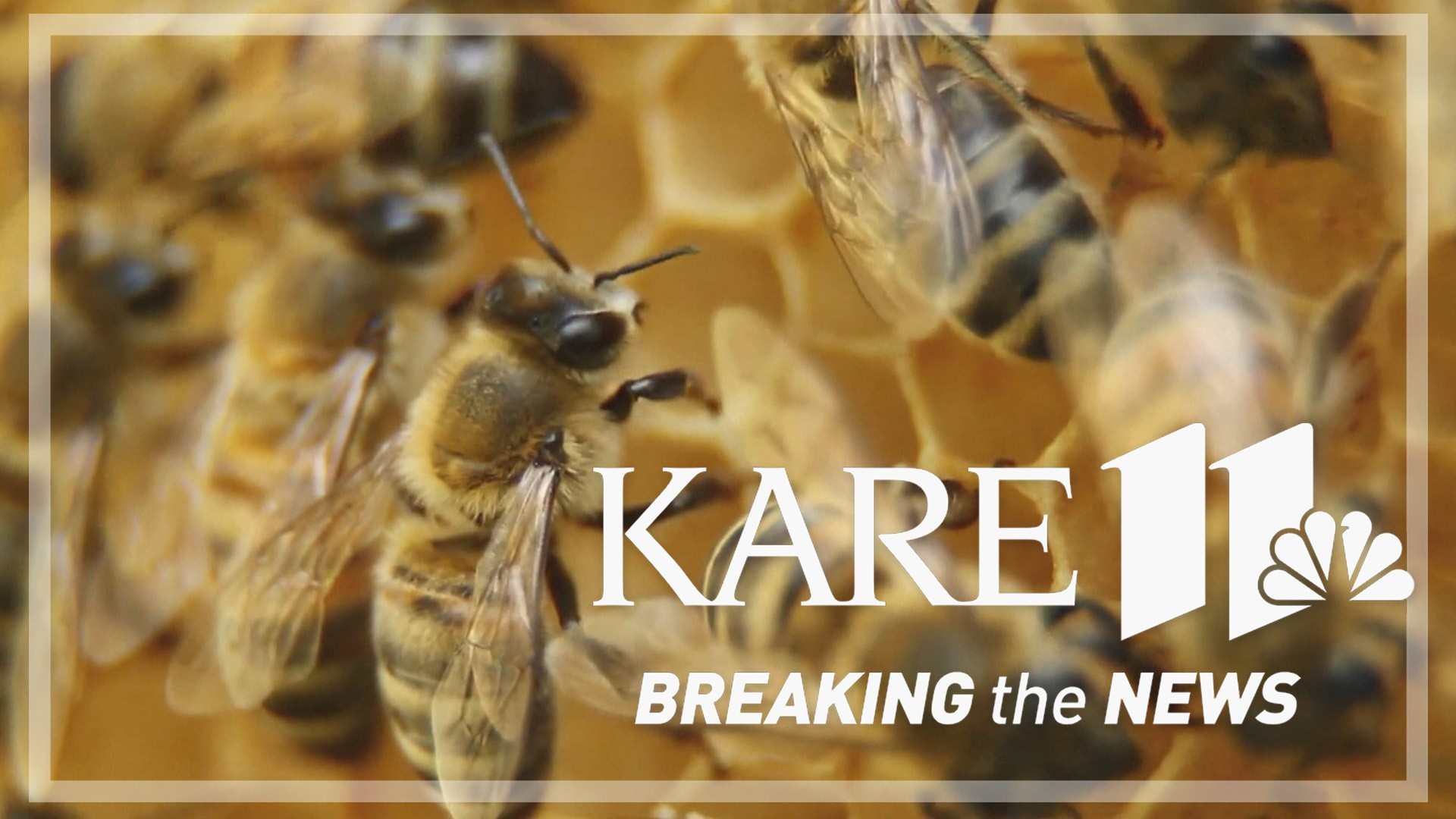MINNEAPOLIS — Whenever there's a news story about bees, it gets a lot of buzz online, especially when it involves saving the bees.
So, when a company announced a new bee vaccine to help, it got a lot of attention.
The new vaccine was created by Dalan Animal Health, and is the first-ever bee vaccine approved by the USDA.
“It is eaten by the queen and it moves through the queen’s body and gets into her ovaries. When she lays eggs, part of that response is passed on to her offspring,” University of Minnesota Entomologist Dr. Marla Spivak explained.
The vaccine is designed to protect honeybees from a deadly bacteria called American Foulbrood.
"If a colony gets this disease, it's highly infectious to other honeybee colonies,” Dr. Spivak said. “It's problematic. They either need to be treated with an antibiotic or killed."
Dr. Spivak says this new vaccine is an exciting stepping forward, but it's not exactly a cure for this problem.
"This vaccine helps reduce the amount of disease they have. It didn't completely cure or eliminate it,” Dr. Spivak explained.
"I'll say the efficacy of this particular vaccine against American foulbrood was only up to 50%. If it was a human vaccine, it wouldn’t be good enough, let’s just put it that way.”
And the disease itself isn't a major problem for local beekeepers.
"I honestly have never seen it,” beekeeper Travis Bolton said.
Bolton owns Bolton Bees in Hugo Minnesota, where they raise around 2,000 hives a year. Bolton sells some of his hives to beginner beekeepers to help them get started. He also produces around 50,000 to 75,000 pounds of honey a year.
“We sell our honey in grocery stores, breweries, all over,” Bolton said.
Bolton and his wife, Chiara, have been beekeeping for 10 years. During that time, Bolton says he has come across the European Foulbrood a few times.
“It can happen at various stages of the season. It can put a lot of stress on the bees,” Bolton explained.
But Bolton and Dr. Spivak say this new vaccine can only protect honeybees from American Foulbrood.
“I would say we probably wouldn't be the first ones to use it. I think we would just probably sit back and see some practical use, some practical data,” Bolton said.
Dr. Spivak agreed.
"It's not commercially available yet and it really has not been field tested at a level where I would feel comfortable advocating to any beekeeper to use it yet,” Dr. Spivak said.
She also added that American Foulbrood is only a drop in the bucket compared to the other problems honeybees are dealing with.
"Honeybees major problem is Varroa Mites. It's a parasitic mite that sucks on their tissues and some of their blood and when they do that, they can transmit viruses,” Dr. Spivak says.
Some other concerns involve the changing environment, dwindling food supply, pesticides, herbicides, Dr. Spivak says the problems are almost endless.
However, seeing this new vaccine gives her hope, that more companies are focused on this issue of saving the bees, and the research behind this vaccine could be used to create even more vaccines and treatments down the road.
"I think it's definitely a steppingstone. Whether it's a huge steppingstone is to be determined."
According to Dalan Animal Health’s website, the company has other vaccines and treatments already in the pipeline, including a vaccine for European Foulbrood.
So, this new vaccine could be the first of many in the coming years.
The company says this vaccine should hit the market later this year.
Watch more Breaking The News:
Watch all of the latest stories from Breaking The News in our YouTube playlist:

